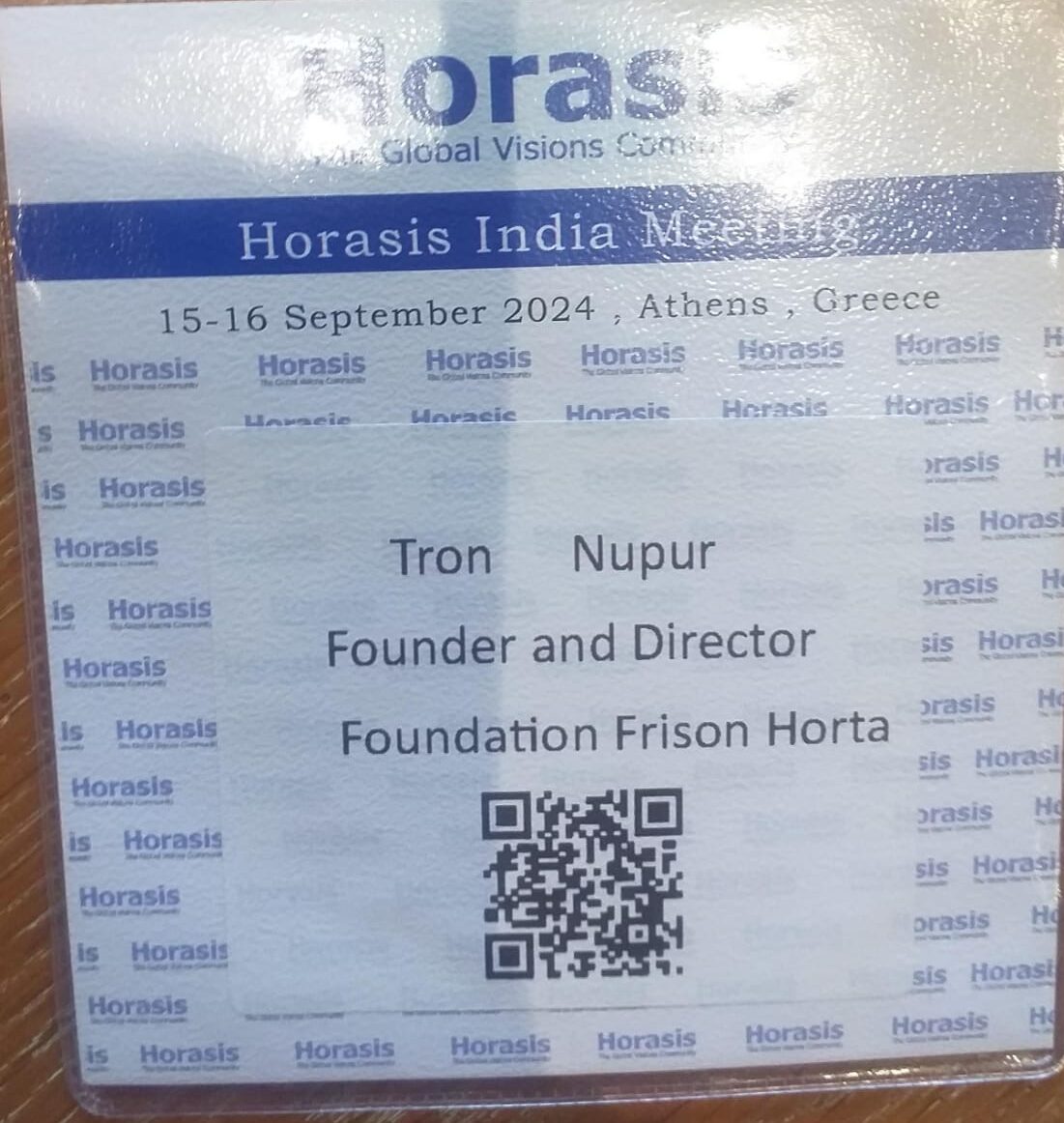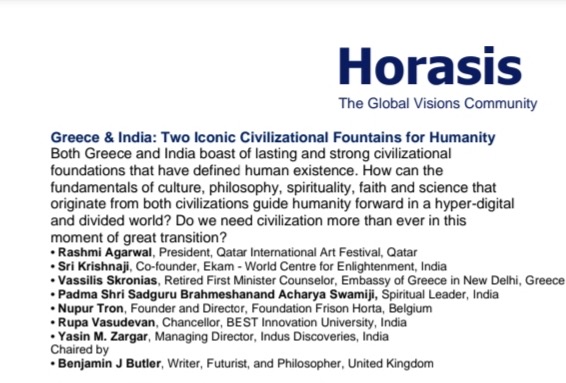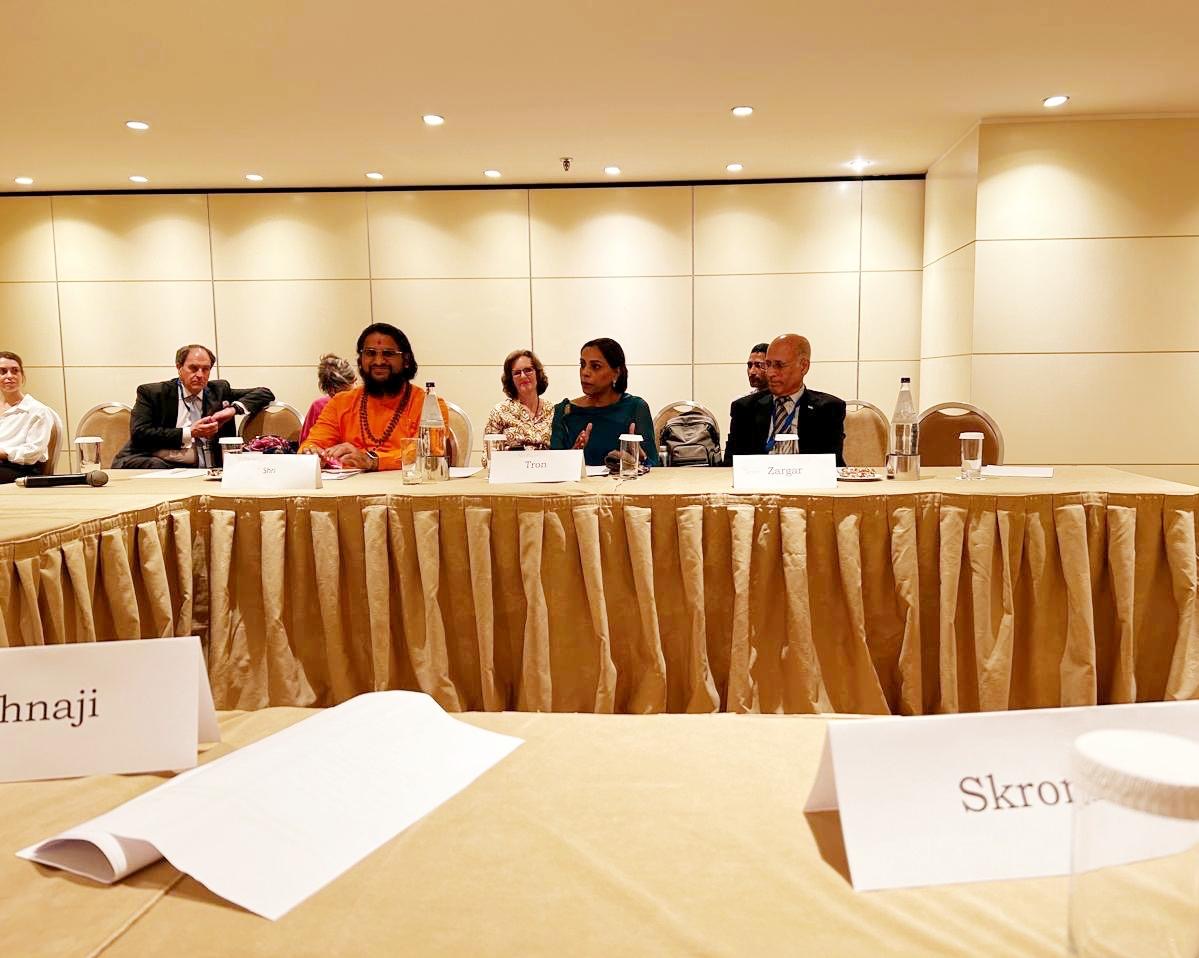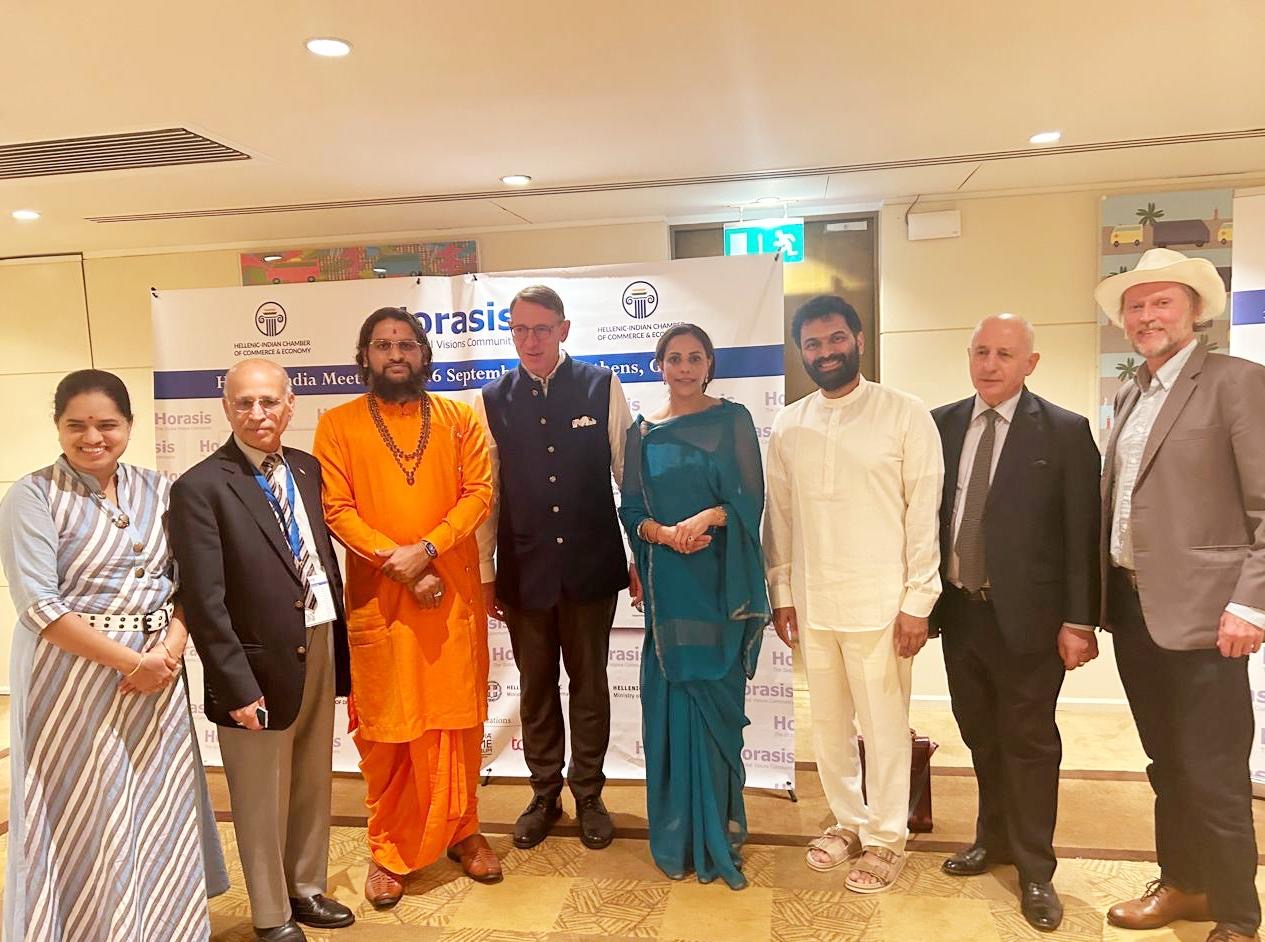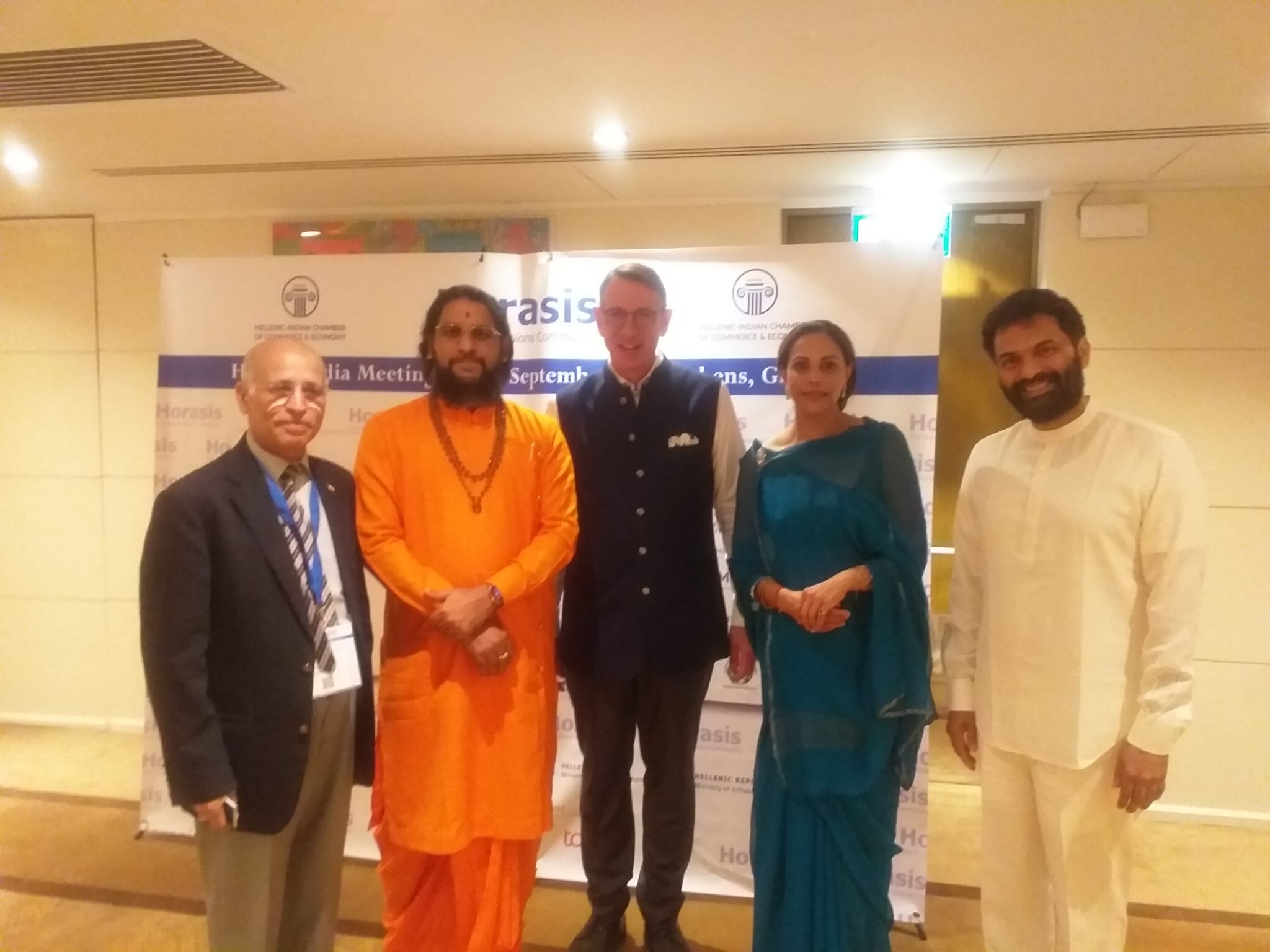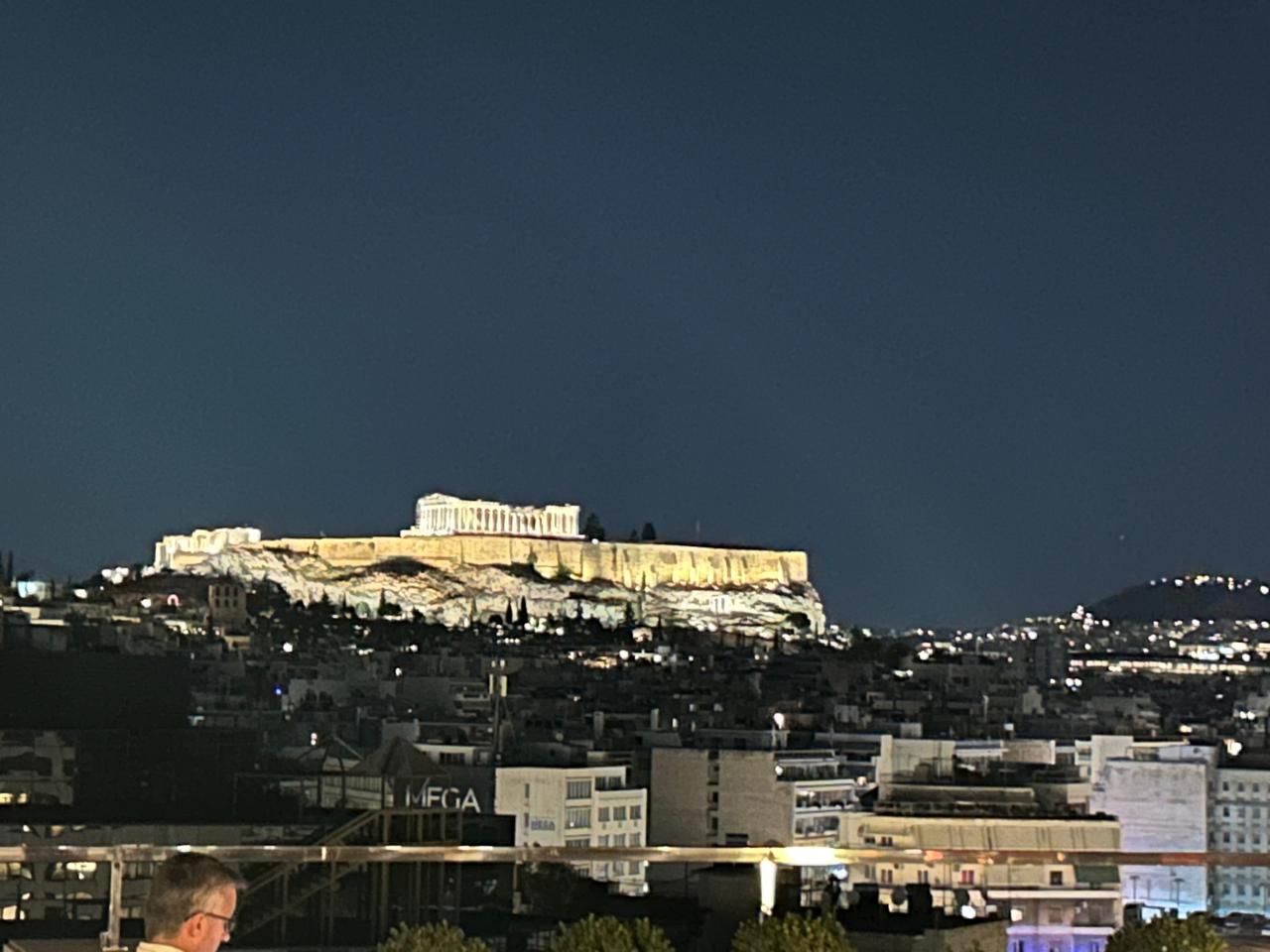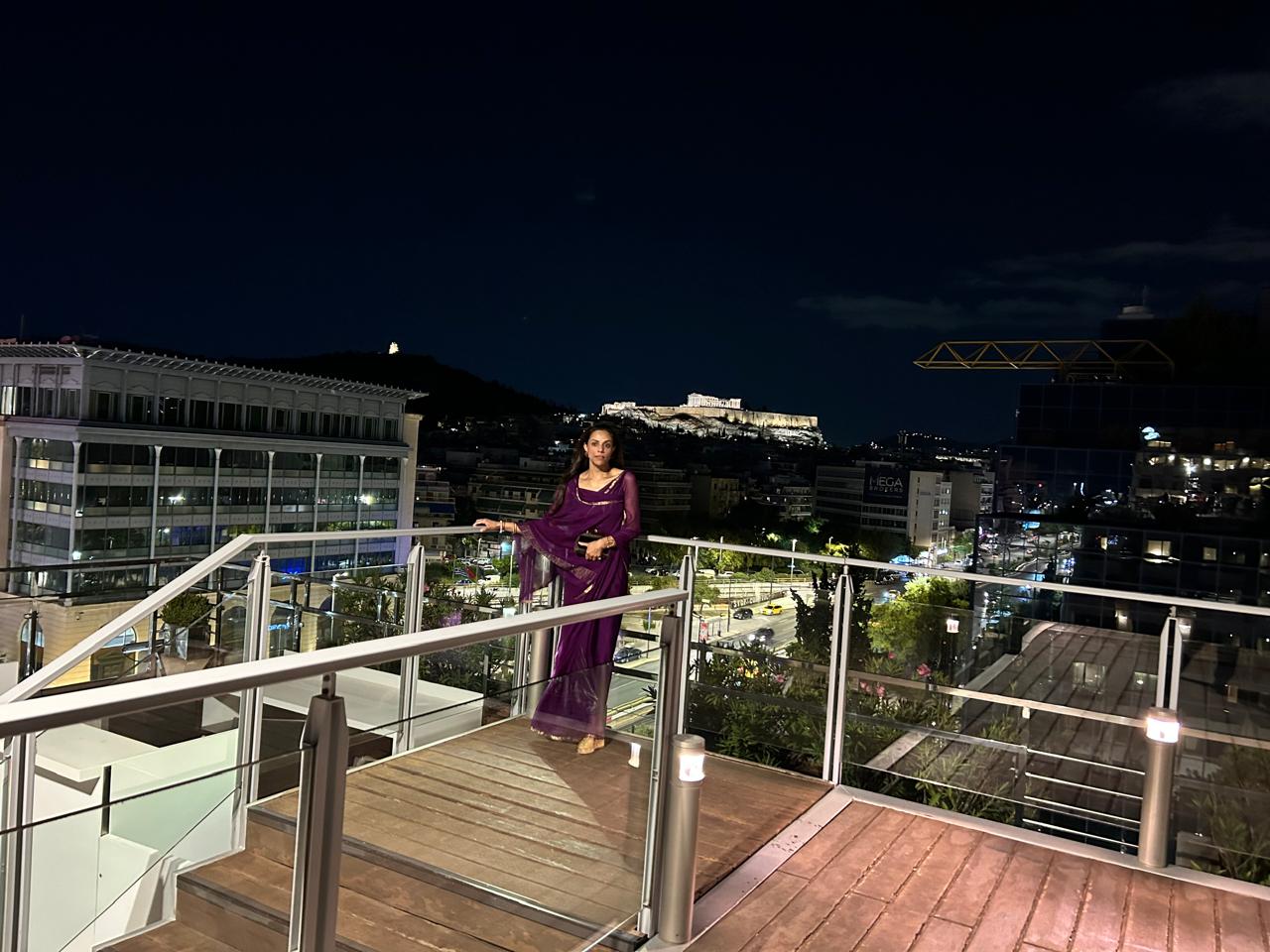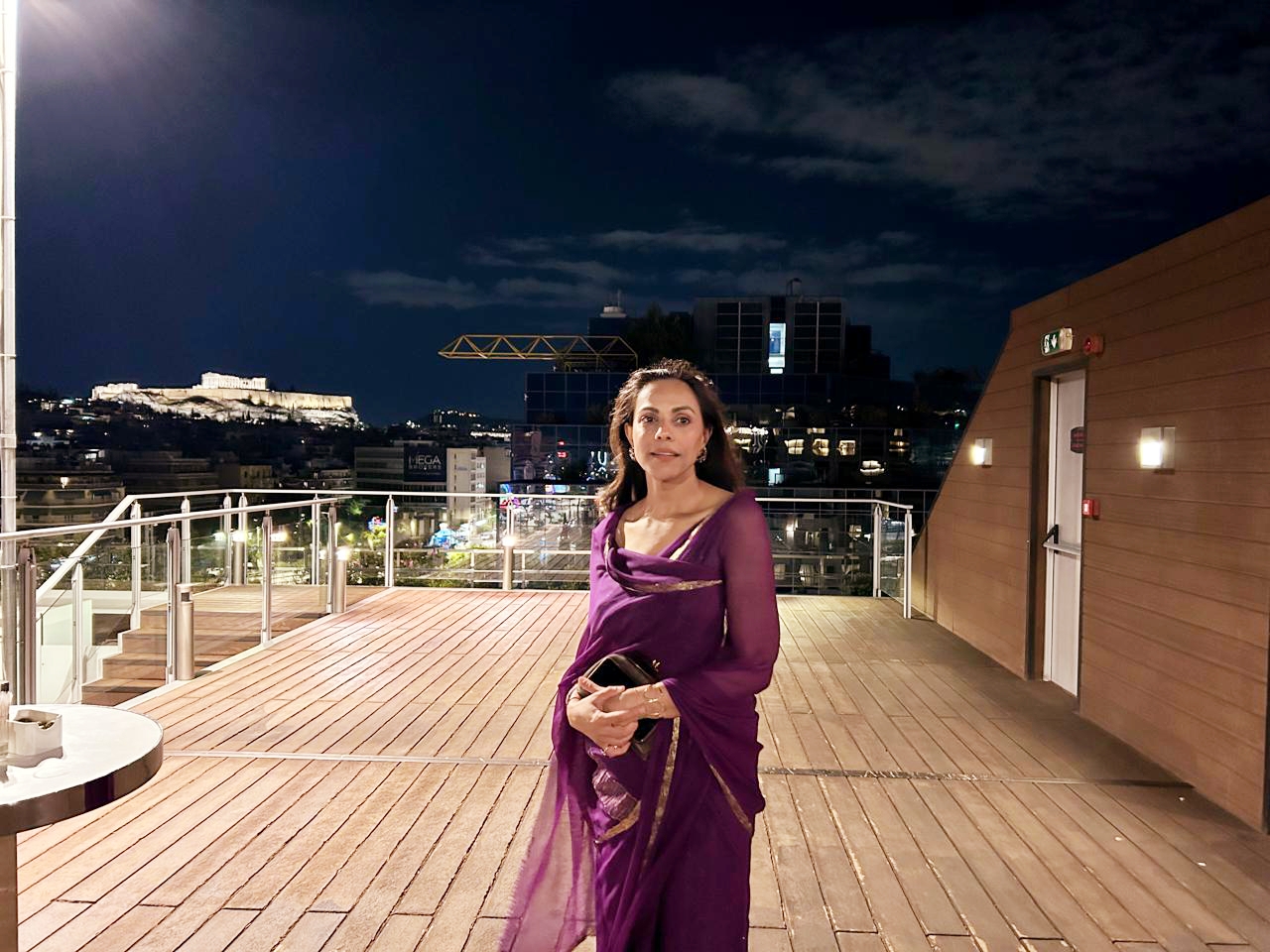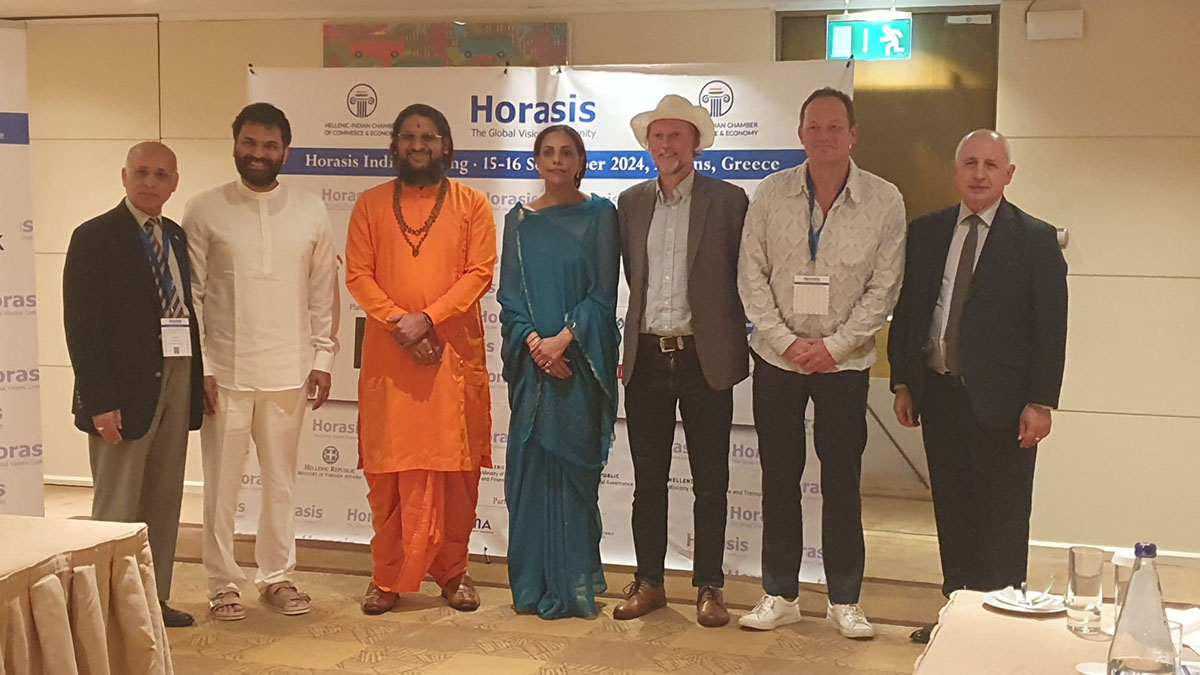
Horasis India Meeting 2024
Athens, Greece, 15 September – 16 September
Hotel Inter Continental Athenaeum Athens
Co-hosts:
- Confederation of Indian Industry (CII)
- Hellenic - Indian Chamber of Commerce and Economy
Greece & India: Two Iconic Civilizational Fountains for Humanity
Both Greece and India boast of lasting and strong civilizational foundations that have defined human existence. How can the fundamentals of culture, philosophy, spirituality, faith and science that originate from both civilizations guide humanity forward in a hyper-digital and divided world? Do we need civilization more than ever in this moment of great transition?
Panel discussion - Participants
- Yuri Van Geest, Co-founder, Naluna, The Netherlands
- Sri Krishnaji, Co-founder, Ekam - World Centre for Enlightenment, India
- Vassilis Skronias, Retired First Minister Counselor, Embassy of Greece inNew Delhi, Greece
- Padma Shri Sadguru Brahmeshanand Acharya Swamiji, Spiritual Leader, India
- Nupur Tron, Founder and Director, Foundation Frison Horta, Belgium
- Yasin M. Zargar, Managing Director, Indus Discoveries, India Chaired by
- Benjamin J Butler, Writer, Futurist, and Philosopher, United Kingdom
My talk at the panel
The Indo-Greek ties go back to ancient Yavana Kingdom that existed from 200 BC to 10 AD and covered parts of modern-day Afghanistan, Pakistan and North-Western India. In the two centuries of their rule the Greek Kings combined the Greek and Indian languages and symbols as seen on the coins and unified ideas imprinted on the archaeological remains shared by the two countries.
These first bilingual coins used Brahmi script whereas the later kings would generally use Kharosthi script of Ghandara. The Greek also went as far as incorporating Indian deities or the Buddha which included various Indian symbols such as lion, elephant, zebu and bull.
In my own native Kashmir in India, the best description of this Indo-Greek relationship echo in the words of the famous 20th century Missionary Arthur Neve, he says: “Ancient India has nothing more worthy of its early civilisation than the grand ruins of Kashmir, which are the pride of Kashmiris and admiration of travellers. The massive, grotesque and elegant architecture may be admirable in parts of India but nowhere is to be found the counterpart of the classically graceful, yet symmetrically massive, edifices than in Kashmir”.
The late General Sir Alexander Cunningham, the Founder of Indian Archaeology says that the architectural remains of Kashmir exhibit undoubted traces of the influence of the Grecian art. His remarks: “Even at first sight one is immediately struck by the strong resemblance which the Kashmirian columnade bear to the classical peristyle of Greece.
Edward Pocock, one of the most eminent English Oriental scholars says that there are traces of the settlement of Kashmiris in Greece. It is by no means improbable that some Kashmiris went to Persia and Greece in the time of Darious’s invasion of the Panjab and Alexander’s conquest of India and settled there. It is also possible that some people from Greece came and settled in Kashmir in ancient times.
The tribe Mleechas, as referred in the 12th century Kashmir history, the Kalhana’s Rajatarangini, is assumed to have been Greeks.
Greek had interactions with India’s culture and religions that are testified by archaeological evidence gathered from Vidisha, Sanchi & Bahrut in India.
The settlements of Greek merchants in Bengal began in early 18th century and lasted until the middle of the 20th century. The trading house of the Ralli Brothers both in Calcutta and Dacca was the most important Greek business presence in India during the 19th and 20th centuries.
The church cemetery and property of the Greek community in Bengal are currently managed by the Charitable Foundation of the Greek Orthodox Church in Kolkata.
The DNA analysis of many skeletal remains at the Roopkund Lake, in Uttrakhand in India indicate a genetic ancestry tie to Greece.
The graves of Indian soldiers who died in Greece during the two Great Wars are located in the memorial grounds of the cemeteries of the Allied Forces in Athens, Lemons and Thessaloniki.
The eminent modern Greek Indologist Dimitrios Galanos lived in India for nearly 40 years and translated many Sanskrit texts into Greek making available the knowledge of the Indian philosophy and literary traditions known to Greece.
Way back in 2000, the Centre of International Studies at the famous JNU, New Delhi constituted a Chair of Greek Studies in the name of this Greek Indologist.
The Greek-India Business Association established in Athen’s in 2009 has recognized India as honoured country in 2009 and 2019 at the Thessaloniki International Festivals.
In 2018, Indira Gandhi National Centre od Arts, New Delhi and Benaras Hindu University jointly held two conferences at Varanasi and New Delhi to commemorate the legacy of Dimitrios Galanos.
In November 2018, Europe’s first International Symposium on Jainism was organised by ELINEPA in Athens.
A year later in 2019, 17th International Conference on Hindi was hosted again in Athens.
In 2021 ELINEPA and ICCR (Indian Council for Cultural Relations) co-organized a painting exhibition and other cultural programmes to commemorate the 200th anniversary of the Greek Revolution.
Similarly, Hindi, the official language of India is being taught at the Foreign Language Teaching Centre at Athens.
Sanskrit, Hindi, Indian Philosophy and South Asian History are being taught at the Athen’s Centre for Indian and Indo-Hellenic Studies since 2016.
It was on the joint initiative of both India and Greece that a statue of Mahatma Gandhi was installed and unveiled in Athens in June, 2021.
In March 2022 the then President of India visited Athens to confer the award of Padmashri on the eminent Greek Indologist Prof. Nicholas Kaznas for his distinguished services to cause of literature and education.
Later that year JNU, New Delhi, Hellenic Institute, Venice and Athens co-organized an International Conference on the Greek World & India.
Equally standout ties are marked by the fact that about 35000 Indians live and work in Greece. Similarly Greek companies have partners in India.
An infrastructure consortium made up of India’s GMR Airports Limited and Greek GEK Terna are jointly constructing the new Kastelli Airport in Heraklion, Crete.
It is evident from the above facts that the ties between Greece and India go far behind in in time and are still forging to travel greater distances in future.
As of 2024 the ties between the two nations are closer than ever before and considered both historical and strategic. Effective strategies for tourism between both countries will be a key driver for development for India & Greece.
I express my profound and deep gratitude to the organizers for the opportunity to share some highlight landmarks of Indo-Greek ties from antiquity to modern times, to emphasise India and Greece as
Two Iconic Civilizational Fountains for Humanity
I also thank the distinguished assembly for lending ear to my quick run on the enduring India-Greece relationship.
THANK YOU
